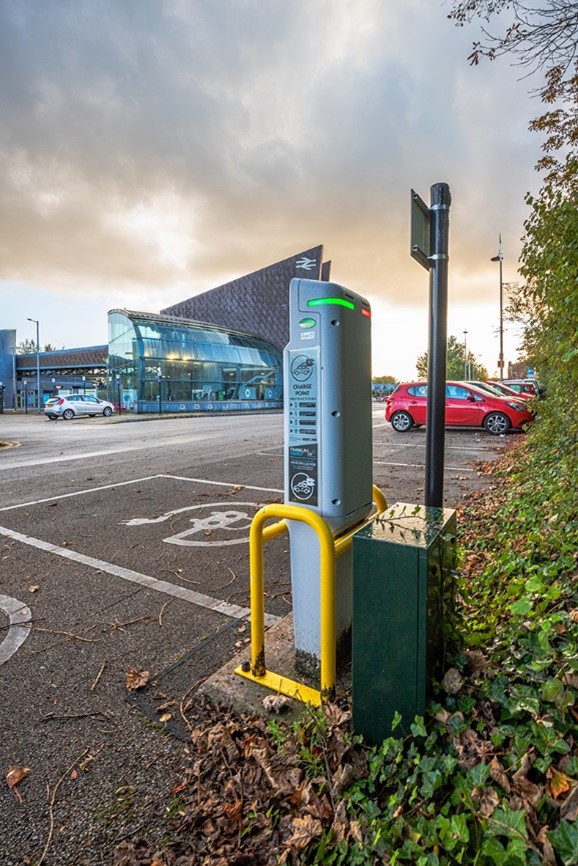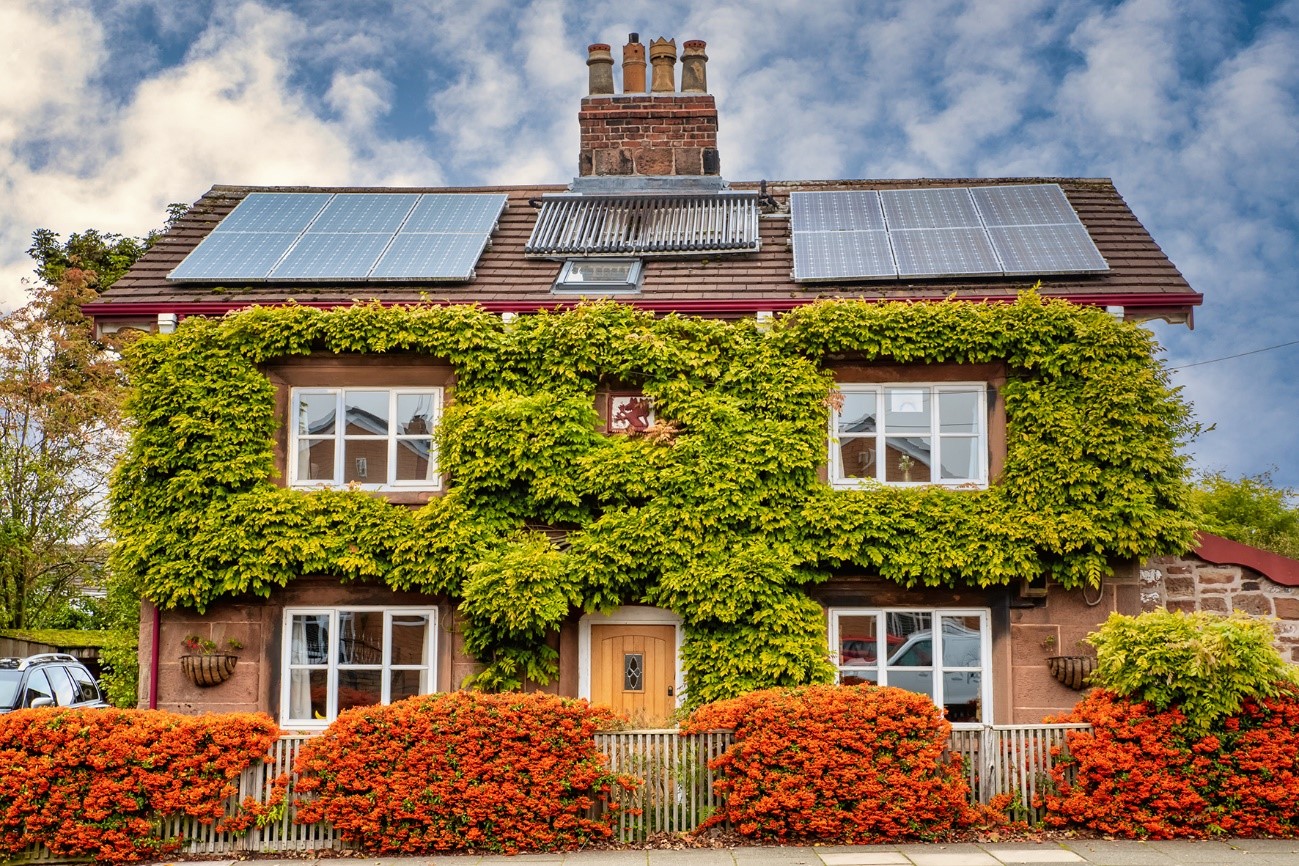Climate Change is a huge problem, and it often feels like we can't individually make a difference. Here's some practical ways that we can have an impact on this global challenge.

In 2021, St Helens produced 1,110,300t of CO2. If we want to reach net-zero by 2040, we need to be reducing our emissions by an average of 58,437 tonnes per year. That sounds enormous, and may people wonder what impact they could actually have.
However - domestic and transport emissions actually contribute 48% of this total! That means that we all individually have a huge role to play in bringing down our carbon footprint. Below are some of the main ways that you can make a difference.
Energy Use
Did you know that devices left on standby account for upto 40% of their total energy usage! Computers, TVs and other screens, phones, game consoles – all of them use substantial energy whilst plugged in and not in active use. Turning these items off at the wall overnight will save money and carbon emissions.
Travel

Cutting down on your personal vehicle use is one of the most effective ways to reduce emissions. The average person in the UK emits 1.6 tonnes carbon per year from driving, about the weight of a car! 25% of trips in UK are under a mile. 71% are under 5 miles. Using active travel instead for all those trips under a mile would save 400kg of carbon a year – about the same weight as a horse!
For the journeys where you must drive, an electric or hybrid-electric car can dramatically reduce your carbon emissions. The average new petrol car emits 162g of CO2 per mile. An equivalent electric car emits 47g of CO2 per mile travelled. If an electric car is charged using 100% renewable electricity, then it emits 0g of CO2.
Flying is one of our biggest sources of carbon emissions. A return flight from London to Paris emits 244kg of carbon. Taking the train would emit 22kg of carbon. Reducing the amount of flights we take saves a substantial amount of carbon.
Reuse and Recycle
Extending the life of goods reduces carbon emissions overall. E.g. a second hand sofa has no associated carbon emissions. For example, producing a brand new sofa emits an average of 90kg of CO2. Reducing waste and consumption reduces our emissions footprint.
Recycling items into new products saves the carbon that would be emitted by digging up new raw materials. For example, the average UK household consumes 340 aluminium cans a year. Recycling all of these would save 42kg of CO2 per year! 72% of cans are recycled in the UK with the other 28% going to landfill. Increasing the percentage of goods we recycle reduces our emissions.
Diet

Reducing meat consumption is one of the biggest ways that an individual can affect their personal carbon emissions. Most of this comes from methane emissions from livestock, but also feed production, transport and heating for animal shelters.
Big Changes
About 60% of a home’s carbon emissions come from burning gas for heating and cooking. Improving your home’s insulation can reduce emissions substantially. Existing homes emit on average double what a new build fully insulated property emits. Improving the energy efficiency of your home can save you money and reduce your carbon footprint. Replacing gas heating with electrical heating systems saves substantial carbon and is often cheaper to operate (but more expensive to install)
After improving your home insulation, the best way to reduce emissions from heating is to replace gas or oil heating systems with a heat pump. The most common of these is the air source heat pump (ASHP) which draws heat from the air and upgrades it to a temperature that can heat water and provide space heating in your home. To work efficiently however, these often require resized radiators and a lower operating temperature, meaning good insulation is key. Government grants to help toward the cost of upgrading to an ASHP or similar are available, and more details can be found here - https://www.gov.uk/apply-boiler-upgrade-scheme/what-you-can-get.

Installing rooftop solar panels can save money and carbon emissions by ensuring that a large proportion of the energy used in your home comes from a renewable source. Installing solar panels saves an average 3-bed home 900kg of CO2 emissions per year compared to using grid electricity. It also saves an average household 62% on their annual electricity bills. UK government backed loans are available for this type of home improvement here - https://www.gov.uk/green-deal-energy-saving-measures.
If you can’t move to renewable energy directly, then a range of renewable tariffs exist that ensure that your energy comes from renewable sources. The best of these tariffs offer a verified 100% renewable energy source with additional renewable capacity being built through the company energy is purchased from. Good information on these tariffs can be found here - https://www.cse.org.uk/advice/green-electricity-tariffs/.
Council Action
Our council is also playing its role in supporting our community to reduce its carbon footprint. On 24th May 2023, our council adopted a climate action plan to help us achieve our net-zero goal.
Among the actions, the plan commits to:
- Invest £4.5m to improve cycling and pedestrian routes across the borough
- Introduce additional ULEV, electric and hydrogen vehicles to the council fleet
- Explore opportunities for a town centre heat network
- Deliver an Electric Vehicle (EV) charging and infrastructure strategy
- Promote waste minimisation and closed loop recycling
- Plant more trees, in adding to the 500 planted in the last couple of years
- Ensure new developments maximise walking, cycling and public transport movement
- Support schools to retrofit buildings with low carbon technologies
These changes will put us on a path much more closely aligned with net-zero. However, there is much more to do. We must make changes together as a community to limit the levels of climate change which will occur, and protect our communities from the effects of climate change that are already locked in.
By 2040, our borough needs to entirely eliminate fossil fuel heating in homes and businesses. We need to expand our electricity supply whilst ensuring that 100% of the energy we use is renewably generated. We must renew our transport systems to prioritise active travel and carbon neutral vehicles over existing petrol and diesel vehicles. This large scale action will need to take place rapidly to ensure that we stay on our path to net-zero.

